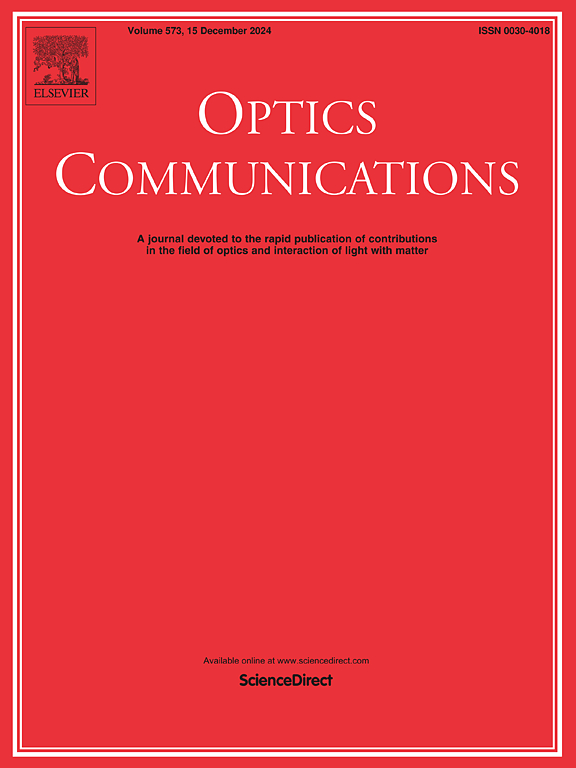欺骗状态BB84协议中相位调制器的不完善准备和木马攻击
IF 2.2
3区 物理与天体物理
Q2 OPTICS
引用次数: 0
摘要
量子密钥分发(QKD)利用量子力学为加密密钥交换提供了一种理论上安全的方法,但在实际实现中存在相位调制器受到特洛伊木马攻击等漏洞。本文分析了QKD系统在这种攻击下的安全性,考虑了理想和不完美的状态准备场景。将木马攻击模型推广到探测脉冲的任意状态,并引入了特殊形式侧信道信息泄漏的保守界。采用这种新方法并存在额外的硬件被动对策,量子币不平衡(一个关键的安全参数)仍然很低(在理想状态准备时为10−7,在不完全准备时为10−5)。数值模拟证实了光纤通道在100公里以上距离上的非零安全密钥速率。本文章由计算机程序翻译,如有差异,请以英文原文为准。
Imperfect preparation and Trojan attack on the phase modulator in the decoy-state BB84 protocol
Quantum key distribution (QKD) provides a theoretically secure method for cryptographic key exchange by leveraging quantum mechanics, but practical implementations face vulnerabilities such as Trojan attack on phase modulators. This work analyzes the security of QKD systems under such attacks, considering both ideal and imperfect state preparation scenarios. The Trojan attack model is generalized to arbitrary states of probing pulses and conservative bounds of information leakage through side-channel of special form are introduced. The quantum coin imbalance, a critical security parameter, remains low (on the order of for ideal state preparation and for imperfect preparation) with this new approach and presence additional hardware passive countermeasures. Numerical simulations confirm nonzero secure key rate at distances over 100 km through optical fiber channel.
求助全文
通过发布文献求助,成功后即可免费获取论文全文。
去求助
来源期刊

Optics Communications
物理-光学
CiteScore
5.10
自引率
8.30%
发文量
681
审稿时长
38 days
期刊介绍:
Optics Communications invites original and timely contributions containing new results in various fields of optics and photonics. The journal considers theoretical and experimental research in areas ranging from the fundamental properties of light to technological applications. Topics covered include classical and quantum optics, optical physics and light-matter interactions, lasers, imaging, guided-wave optics and optical information processing. Manuscripts should offer clear evidence of novelty and significance. Papers concentrating on mathematical and computational issues, with limited connection to optics, are not suitable for publication in the Journal. Similarly, small technical advances, or papers concerned only with engineering applications or issues of materials science fall outside the journal scope.
 求助内容:
求助内容: 应助结果提醒方式:
应助结果提醒方式:


